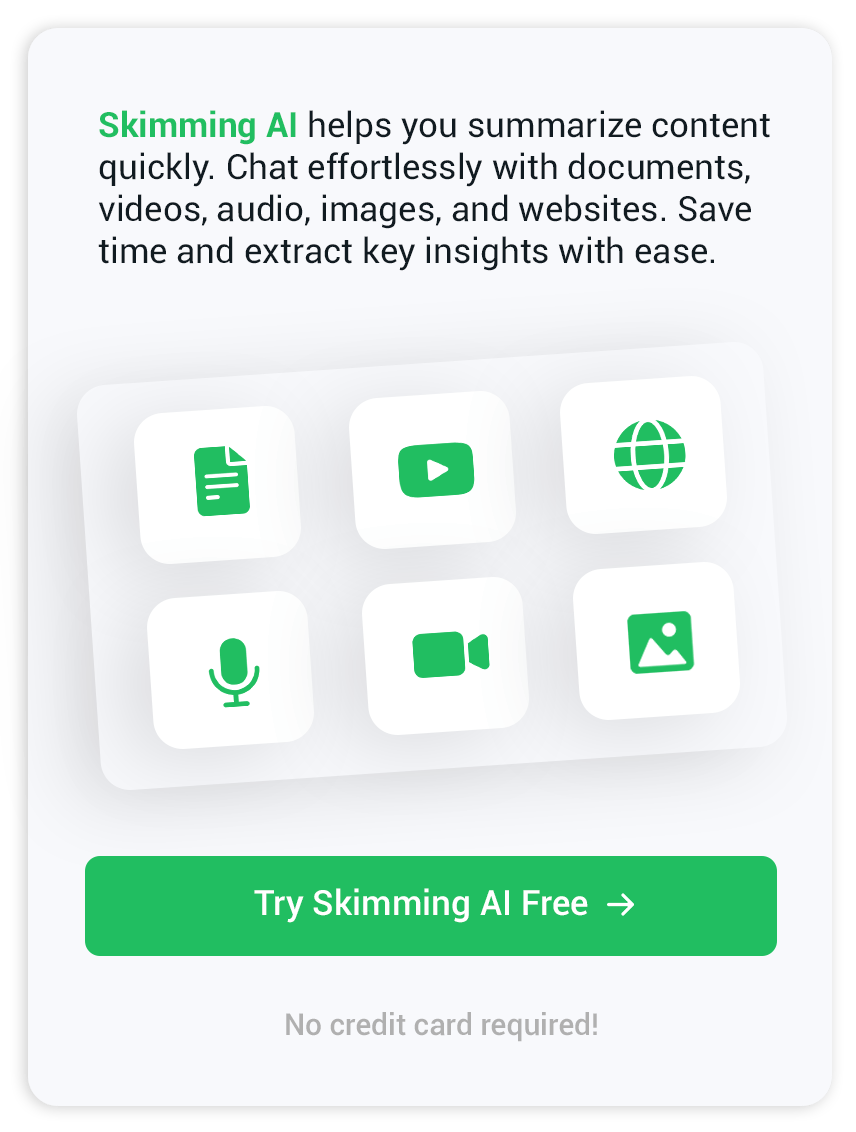AI audio summarizer: Turn Hours into Crisp Insights
When recordings pile up faster than anyone can listen, an AI audio summarizer steps in as a tireless helper, carving long conversations into sharp takeaways you can scan in moments. Whether you host podcasts, conduct user-research interviews, or attend too many meetings, trimming spoken content down to its essence frees up time and attention.
Why audio summarization grew from convenience to necessity
People talk roughly three times faster than most of us can type, yet our brains prefer to absorb information in compact bites. Remote collaboration, podcasting, and on-demand learning have exploded, leaving professionals overwhelmed with information. Turning voice data into structured nuggets means you no longer rewind recordings or skim messy notes; the gist is already laid out.
Behind the scenes: the technology that powers an AI audio summarizer
An automatic transcription engine converts waveforms into text, often using large speech-to-text models. Next comes natural language processing, which identifies topics, speaker intent, and key moments. Modern systems apply transformer architectures similar to those used in language generation, ranking sentences by importance and stitching them into story-like overviews. Because the summarizer always references its transcript, results stay grounded in the original context.
Core abilities to look for
- Multichannel recognition for podcasts or hybrid meetings
- Timestamped highlights so you can jump from summary back to sound
- Language flexibility when content shifts between English and other tongues
- Privacy controls such as on-device processing or redaction
- Export formats, including text, Markdown, or instant meeting minutes generator output
Practical moments an AI audio summarizer shines
Daily meetings
Scrum calls, brainstorming sessions, and stakeholder updates are transformed into concise decisions and actionable items, freeing teams from manual note-taking.
Long-form podcasts
Podcast summarization offers a teaser for listeners deciding whether to dive into a two-hour episode and helps hosts craft show notes in seconds.
Academic lectures
Students revisit complex material quickly, focusing on key equations or theories rather than replaying the entire lecture.
Voice note exchanges
Busy professionals send voice memos that the summarizer converts into concise text, allowing recipients to scan rather than listen.
Research interviews
Automatic transcription, combined with a voice note summary, outlines themes, sentiment, and quotable moments without requiring hours of manual review.
Comparing popular tools
Several platforms bring these abilities to life:
ToolStandout capability deal scenario
Notta Rich speaker labeling and automatic chapter creation Detailed webinars
NoteGPT Quick one-click summaries for uploaded audio files Classroom recordings
ScreenApp Built-in recorder with instant summaries of Product demos
AnySummary Drag-and-drop interface for oversized files Long interviews
Skimming.ai is a Free AI audio summarizer plus a sibling YouTube summarizer for video soundtracks Cross-format content creators
Including Skimming.ai in your workflow means you can also switch to its YouTube summarizer when video clips hold critical discussion, maintaining a single hub for speech-driven insights.
Considerations for accuracy
Context terminology, overlapping speakers, and background noise can trip even advanced engines. Supplying a glossary of proper names and acronyms, selecting high-quality microphones, and enabling speaker diarization enhance transcript quality, which in turn improves summary clarity.
Bringing crisp summaries to your workflow
The best way to appreciate the time saved is to try a small pilot: feed yesterday’s stand-up or a recent podcast episode into a trusted AI audio summarizer and glance at what returns. Most platforms offer a free tier generous enough for a real-world test. Keep an eye on the points that matter most to you—action items, sentiment, or topic coverage—and fine-tune settings as you go.
When your spoken content condenses into neat paragraphs without a manual grind, you reclaim hours for creative thinking and decision-making. Spin up your first summary, skim the insights, and let your voice data serve you instead of slowing you down.


